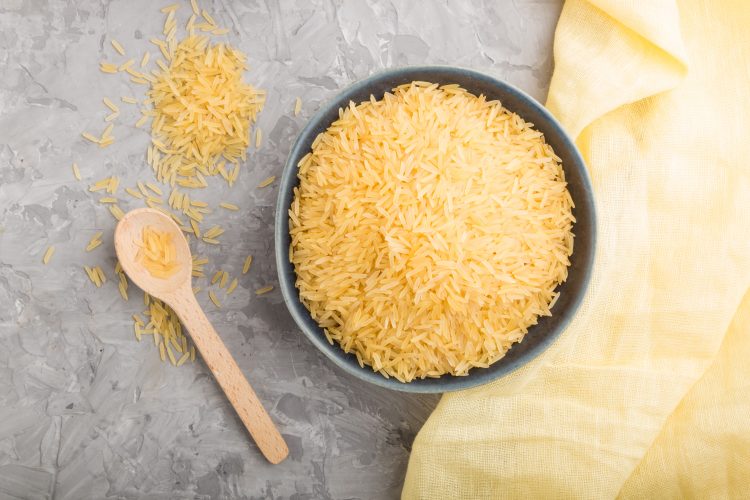Philippines gives Golden Rice green light
- Like
- Digg
- Del
- Tumblr
- VKontakte
- Buffer
- Love This
- Odnoklassniki
- Meneame
- Blogger
- Amazon
- Yahoo Mail
- Gmail
- AOL
- Newsvine
- HackerNews
- Evernote
- MySpace
- Mail.ru
- Viadeo
- Line
- Comments
- Yummly
- SMS
- Viber
- Telegram
- Subscribe
- Skype
- Facebook Messenger
- Kakao
- LiveJournal
- Yammer
- Edgar
- Fintel
- Mix
- Instapaper
- Copy Link
Posted: 28 July 2021 | New Food Magazine | No comments yet
It’s hoped that the deployment of Golden Rice will help combat vitamin A deficiency in the country, with the hardest hit areas set to be targeted first.


Golden Rice is enriched with vitamin A
Filipino rice consumers could soon be eating the vitamin A enriched Golden Rice after Dr John C. de Leon, executive director of the Department of Agriculture (DA) Philippine Rice Research Institute (PhilRice), announced a biosafety permit for propagating the rice.
This biosafety approval is the first authorisation for commercial propagation of a genetically engineered rice in South and Southeast Asia. With this permit, Golden Rice can now be planted for commercial production as per the terms and conditions specified by the DA Bureau of Plant Industry (DA-BPI).
Prior to marketing, Golden Rice will need varietal registration by the National Seed Industry Council, who approves the registration of all new varieties based on consistent good agronomic field performance.
Golden Rice was developed to help treat vitamin A deficiency (VAD). Studies claim that a one-cup portion of cooked Golden Rice contains enough beta-carotene to meet 30 to 50 percent of the estimated average requirement of vitamin A for children aged six months to five years – the group most at risk of vitamin A insufficiency in the Philippines.
“Hard work and diligence over the past six years by our regulatory teams at PhilRice and IRRI has now positioned Golden Rice to achieve impact,’’ said Donald MacKenzie, Executive Director of the Institute for International Crop Improvement (IICI) at the Donald Danforth Plant Science Center.
“Reducing the gap between innovation and impact is IICI’s mission and must become an urgent priority for all stakeholders if we are to meet the [United Nations] UN’s 2030 sustainable development goal of ending hunger, achieving food security and improved nutrition, and making agriculture more sustainable,” he added.
Dr de Leon claimed that the deployment of the beta-carotene enriched rice, in partnership with agencies through market-based and programmatic approaches, would be focused on areas where vitamin A deficiency is high. He also added that a programme would be implemented that aims to cover all the steps in the chain – from seed production, to post-harvest processing and marketing.
Related topics
Related organisations
DA Bureau of Plant Industry (DA-BPI), Institute for International Crop Improvement(IICI), the Department of Agriculture (DA) Philippine Rice Research Institute (PhilRice), the International Rice Research Institute (IRRI), the Donald Danforth Plant Science Center








